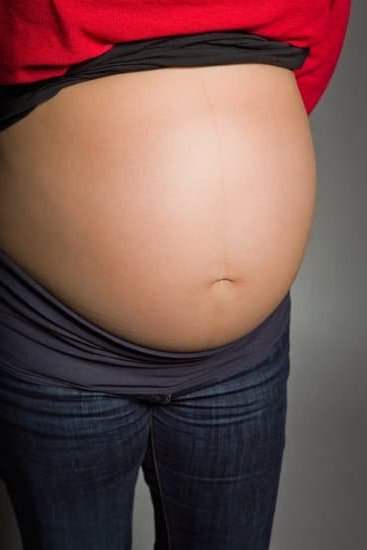Are you wondering how early can u take a pregnancy test? Many women eagerly anticipate the answer to this question as they await the possibility of becoming a mother.
In this article, we will delve into the importance of early pregnancy testing and provide valuable information on understanding the science behind pregnancy tests, recognizing early signs of pregnancy, and factors that influence test accuracy. We will also explore different types of tests available, the best time of day for testing, and essential tips for accurate results.
For many women, early pregnancy testing holds significant importance as it not only provides peace of mind but also allows them to make necessary preparations for their journey into motherhood. Understanding how these tests work and when they can be taken is crucial in empowering women with knowledge about their reproductive health.
Throughout this article, we will provide comprehensive insights into early pregnancy testing, from the science behind it to the dos and don’ts for accurate results. It is our hope that this information will guide and support women as they navigate the exciting and life-changing experience of potential motherhood. Stay tuned as we unravel the mysteries surrounding early pregnancy testing and equip you with essential knowledge for this crucial stage in your life.
Understanding the Science Behind Pregnancy Tests
Pregnancy tests work by detecting the presence of a hormone called human chorionic gonadotropin (hCG) in a woman’s urine or blood. This hormone is produced by the placenta shortly after a fertilized egg attaches to the uterine lining. Most at-home pregnancy tests are designed to detect hCG in urine, while blood tests performed at a healthcare provider’s office can measure the hCG levels in the blood.
At-home pregnancy tests typically use either a test strip or midstream design. The test strip is immersed in a sample of urine, while the midstream design allows the user to hold the test directly in their urine stream. Once exposed to urine, these tests contain chemicals that react with hCG if present, triggering a color change or other indicator to signal a positive result.
Blood tests for pregnancy also detect hCG levels and are generally more sensitive than at-home urine tests, especially in very early pregnancy. There are two types of blood tests: quantitative and qualitative. A quantitative blood test measures the exact amount of hCG in the blood, while a qualitative blood test simply confirms whether hCG is present or not.
It’s important to note that while home pregnancy tests are convenient and can offer quick results, they may not be as accurate as blood tests and can sometimes yield false negatives if taken too early. Understanding how these tests work and being aware of their limitations can help individuals make informed decisions about when and how to take a pregnancy test for reliable results.
| Pregnancy Test Type | Best Time to Take |
|---|---|
| At-Home Urine Test | After missing period |
| Blood Test | 7-12 days after ovulation |
The Early Signs of Pregnancy
When it comes to early pregnancy testing, it’s important to be aware of the early signs of pregnancy. While a missed period is often the first indicator, there are other subtle signs that may suggest you could be pregnant. Here are some common early signs of pregnancy to look out for:
1. Fatigue: Feeling more tired than usual, even if you’ve had enough rest, could be a sign of early pregnancy.
2. Breast changes: Swollen or tender breasts, as well as darkening of the areolas, can be an early indication of pregnancy.
3. Nausea and vomiting: Often referred to as morning sickness, these symptoms can start as early as 2 weeks after conception.
4. Increased urination: In the early stages of pregnancy, hormonal changes can lead to increased frequency in urination.
5. Cravings or aversions: Sudden cravings for certain foods or aversions to others can also be an early sign of pregnancy.
Understanding these early signs can help you determine if it’s time to take a pregnancy test and find out for sure if you’re expecting a baby.
It’s important to note that not everyone will experience these symptoms, and some may experience them at different times during their pregnancies. However, being aware of these potential signs can help you decide when it may be appropriate to take a pregnancy test and confirm whether or not you are pregnant.
Factors That Influence the Accuracy of Early Pregnancy Tests
Several factors can influence the accuracy of early pregnancy tests. One of the most important factors to consider is the timing of the test. The level of hCG, the pregnancy hormone, in a woman’s body increases as pregnancy progresses.
If a test is taken too early, there may not be enough hCG present to be detected, leading to a false negative result. It is recommended to wait at least one week after a missed period to take a pregnancy test for the most accurate results. However, some tests are designed to detect lower levels of hCG earlier than others.
Another factor that can influence the accuracy of a pregnancy test is its sensitivity level. Different brands and types of tests have different sensitivity levels, which determine how low of an hCG level they can detect.
For example, some tests are able to detect hCG levels as low as 20 mIU/ml, while others may require levels closer to 50 mIU/ml for a positive result. Understanding the sensitivity level of a test can help women choose the most appropriate option for their needs.
In addition to timing and sensitivity, other factors such as improper use of the test, expired tests, or medications that interfere with hCG levels can also affect accuracy. It’s important for women to carefully follow the instructions provided with their chosen pregnancy test and consult with a healthcare professional if they have any concerns about potential interference from medications or medical conditions.
Overall, understanding these factors that influence the accuracy of early pregnancy tests can help women make informed decisions about when and how to take a test for the most reliable results.
How Early Can You Take a Pregnancy Test
When it comes to taking a pregnancy test, the timing is crucial. There are different types of pregnancy tests available in the market, each with its own sensitivity level that determines how early it can detect the pregnancy hormone, hCG (human chorionic gonadotropin). Understanding the different types of tests and their sensitivity levels can help in determining how early you can take a pregnancy test.
Over-the-Counter Home Pregnancy Tests
The most commonly used type of pregnancy tests are over-the-counter home pregnancy tests. These tests are designed to detect hCG in your urine, and they vary in terms of their sensitivity levels. Some tests are able to detect lower levels of hCG, allowing for earlier detection of pregnancy. However, it is important to note that even the most sensitive tests may not be accurate if taken too early.
Blood Tests
In addition to over-the-counter home pregnancy tests, there are also blood tests that can detect hCG in your blood. These tests are typically more sensitive than urine-based tests and can detect lower levels of hCG, often providing more accurate results earlier on. Blood tests are usually performed at a doctor’s office or clinic and can provide results within a few hours.
Digital Pregnancy Tests
Digital pregnancy tests are another option for early detection of pregnancy. These tests work similarly to traditional over-the-counter home pregnancy tests but display results digitally rather than relying on traditional line indicators. They also come in varying sensitivity levels, so it’s important to choose one that is designed for early testing if you’re looking to test as early as possible.
Overall, when it comes to how early you can take a pregnancy test, it’s important to consider the sensitivity level of the test you choose. It’s also essential to keep in mind that testing too early may result in false negatives even with the most sensitive tests available. Consulting with a healthcare professional can provide guidance on which type of test may be best for your individual situation.
The Best Time of Day to Take a Pregnancy Test for Accurate Results
When it comes to getting accurate results from a pregnancy test, the time of day at which you take the test can make a difference. Understanding the best time of day to take a pregnancy test can help you maximize the chances of obtaining an accurate result.
Morning vs. Evening Testing
Many experts recommend taking a pregnancy test in the morning because urine is more concentrated at this time, which can increase the accuracy of the test. When you wake up, your body has had several hours to produce concentrated urine, making it more likely that any pregnancy hormone (hCG) will be detectable in your sample.
The Importance of Following Instructions
Regardless of the time of day you choose to take a pregnancy test, it’s crucial to carefully read and follow the instructions provided with the particular test you are using. Some tests may be more sensitive and able to detect hCG at any time of day, while others may specifically recommend testing with first-morning urine for best results.
Considering Individual Factors
While morning testing is generally recommended, individual factors should also be taken into account. If you have irregular sleep patterns or work night shifts, for example, morning testing may not be practical for you. In such cases, it’s important to consult with a healthcare professional to determine the best time for you to take a pregnancy test for accurate results based on your unique circumstances.
Understanding False Positives and False Negatives
When it comes to taking a pregnancy test, understanding the potential for false positives and false negatives is crucial. These results can be confusing and distressing for women who are eagerly awaiting news about their potential pregnancy. It’s important to have a clear understanding of what these results mean and how to interpret them.
Here are some key points to keep in mind about false positives and false negatives in pregnancy testing:
- False Positives: A false positive result occurs when a pregnancy test incorrectly indicates that a woman is pregnant when she is not. This can happen due to a variety of factors, including the use of certain medications, fertility treatments, or medical conditions such as ovarian cysts or menopause.
It’s also possible for an evaporation line or an expired test to cause a false positive. It’s important for women to follow up with a healthcare provider if they receive a positive result to confirm the pregnancy. - False Negatives: On the other hand, a false negative result occurs when a pregnancy test indicates that a woman is not pregnant when she actually is. This can happen if the test is taken too early in the pregnancy before there is enough hCG (human chorionic gonadotropin) hormone in the body to be detected by the test.
Other factors that can contribute to a false negative include using an expired test, improper testing technique, or certain medications that may interfere with the accuracy of the test.
It’s crucial for women who are trying to conceive or suspect they may be pregnant to be aware of these potential pitfalls when it comes to interpreting pregnancy test results. By understanding how false positives and false negatives can occur, individuals can approach early pregnancy testing with more knowledge and confidence.
Tips for Taking a Pregnancy Test
When it comes to taking a pregnancy test, there are some important dos and don’ts to keep in mind in order to ensure accurate results. First and foremost, it’s important to carefully read and follow the instructions provided with the pregnancy test. This includes paying attention to the recommended time frame for reading the results, as well as any specific instructions for how to collect and apply the urine sample.
Another important tip for taking a pregnancy test is to use the first urine of the day for testing. This is because the concentration of hCG (the pregnancy hormone) is typically highest in the morning, which can increase the likelihood of obtaining an accurate result. Additionally, it’s important to avoid consuming excessive amounts of fluids before taking a pregnancy test, as this can dilute the hCG levels in the urine and potentially affect the accuracy of the results.
On the other hand, there are also certain actions that should be avoided when taking a pregnancy test in order to ensure accurate results. For example, using an expired or damaged pregnancy test can lead to inaccurate readings. It’s also advisable to refrain from checking on or manipulating the test once it has been set down to avoid interfering with the results. Furthermore, taking a pregnancy test too early before implantation may also result in a false negative.
By following these dos and don’ts for taking a pregnancy test, individuals can help maximize their chances of obtaining accurate results and gaining valuable insight into their potential pregnancy status.
Conclusion
In conclusion, understanding the importance of early pregnancy testing is crucial for women who are trying to conceive or those who suspect they may be pregnant. By knowing how early can u take a pregnancy test and being aware of the different types of tests available, women can take control of their reproductive health and make informed decisions about their future.
It is important to remember that the accuracy of a pregnancy test can be influenced by various factors, such as the time of day the test is taken and even certain medications or medical conditions. Women should familiarize themselves with these factors to ensure that they are getting reliable results from their tests.
Ultimately, empowering women with knowledge about early pregnancy testing means giving them the tools to plan for their future and make decisions that align with their goals and desires. By understanding how pregnancy tests work, what signs to look out for, and how to interpret the results accurately, women can take charge of their reproductive journey and seek appropriate medical care if needed. Knowledge is power, especially when it comes to something as life-changing as pregnancy.
Frequently Asked Questions
How Soon Will a Pregnancy Test Read Positive?
A pregnancy test can read positive as early as 10 days after conception, but for the most accurate result, it is best to wait until the first day of a missed period.
What Pregnancy Test Will Show the Earliest?
The most sensitive pregnancy tests that can show positive results the earliest are those designed to detect hCG levels at just 7-10 days past ovulation. These early result tests may be able to provide a positive result before a missed period.
What Are the Symptoms of 1 Week Pregnancy?
The symptoms of 1-week pregnancy may not be very noticeable, but some women might experience mild cramping, spotting, breast tenderness, and fatigue. It’s important to remember that every woman and every pregnancy is different, so symptoms can vary widely.

Welcome to my fertility blog. This is a space where I will be sharing my experiences as I navigate through the world of fertility treatments, as well as provide information and resources about fertility and pregnancy.





